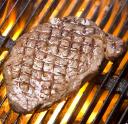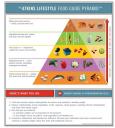What cricket can learn from Dr Atkins and his diet
 Remember when 'The Atkins Diet' was all the rage with celebs, housewives and anyone else wanting to lose weight? It was the fad that sold in it's millions and was totally ignored by club cricket the world over.
Remember when 'The Atkins Diet' was all the rage with celebs, housewives and anyone else wanting to lose weight? It was the fad that sold in it's millions and was totally ignored by club cricket the world over.
It's time for a rethink though.
The good doctor may have had a point. Contrary to common belief, low carb eating can actually boost your cricket performance.
Low carb, more runs and wickets
Lets be clear here. I'm not suggesting you immediately buy the book, do the diet and throw out all your bread forever more. Atkins is a diet and cricketers have no place dieting.
Diets by their nature are designed to end after you have lost weight so you can return to ‘normal' eating. Those goals are not conducive to good cricket.
What we can do is learn from the science behind the diet and include the proven elements of the diet in a sensible eating plan. This will help you control your body composition, have high energy levels on the pitch and be healthy for the rest of the week.
The Basics of Low Carb Eating for Cricket
Generally speaking the Western diet is much higher in starchy carbs (bread, pasta, potatoes) than fiberous carbs (vegetables), protein and fat. The generally accepted healthy way to eat is to eat low fat and high carbs for energy and sport performance.
Research has found that we need far less carbohydrate than we originally thought for both health and performance. Eating low carbs with higher protein and fat is the obvious solution. This way of eating is what Dr Atkins is most associated with.
The common image is a diet based on nothing but fry-ups, cheese, steak and no bread. Ever. While I love a fry-up as much as any red-blooded Englishman does, that is an oversimplification.
While you can have your fried food there needs to be a balance. A diet high in fat and protein needs:
- Lean, complete protein (lean meats, eggs, fish)
- A balance of fats from healthy sources (mixed nuts, olive oil, fish oil)
- Good sources of vitamins and minerals (red, yellow, purple, orange and green vegetables)
This is a very healthy way to eat. It also provides you with plenty of energy, contrary to the popular belief that you need lots of carbs to have lots of energy.
Good Carb, Bad Carb
If you eat every meal with those three things in mind you will be eating in a very close way to the Atkins diet. Before long your body will start burning fat for energy instead of carbohydrate. That's a good thing because excess body fat is burned off without you losing any strength.
This is also where Atkins reaches it's limit for cricketers.
Atkins is based needing less carbs, but for recovery from a hard game carbohydrates are essential.
That means that straight after a game (and for 1-3 hours after) you have a window where eating bread, pasta or potatoes will help your body recover for the next match.
Carbs are certainly not the enemy when it comes to adapting Atkins for cricket, they just need to be eaten at the right time.
Following a sensible eating plan based on Atkins with these adaptations are your best bet to eating right for cricket and health. If only the traditional cricket tea could catch up a little.
For more on this see Precision Cricket Nutrition
- Login to post comments



Comments
[...] Insulin. One thing the guide doesn’t really go into is insulin management. For me this is the most important weight loss factor after eating less. It boils down to ’saving’ your starchy foods (bread, pasta, potatoes, rice) until after you have exercised. You can read more here, here and here. [...]
i like the atkins diet and i it's work fo me better and now i follow the atkins diet food list every day at become a habit thanks dr Atkins for this great diet
atkins diet food lis https://www.youtube.com/watch?v=T9c9KFx7it0
A well planned and right diet is so important for athletes and sports people. It can help in maintaining the stamina and the energy level needed for the action. Thanks for the tips. So helpful. magnetic balls